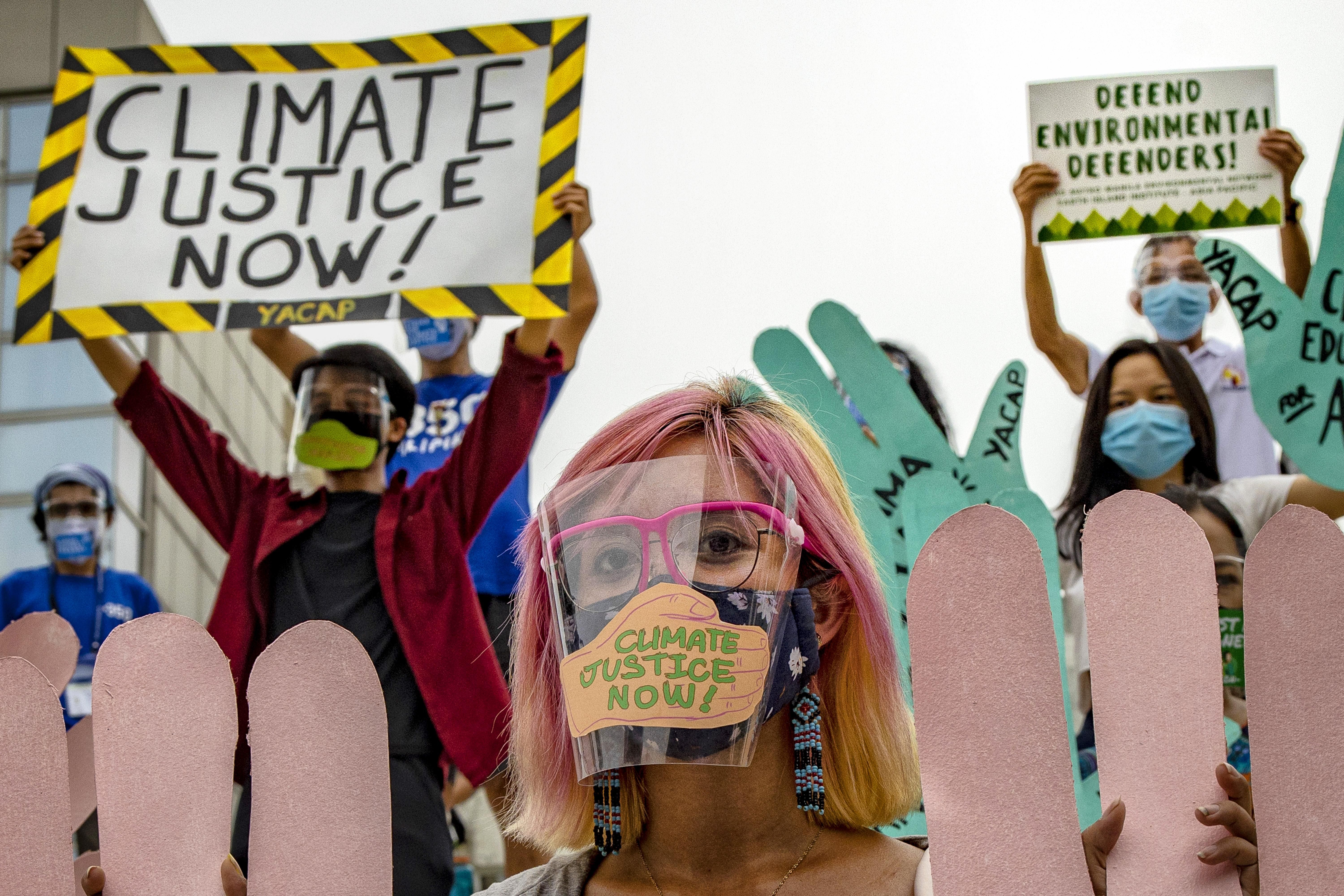
Ahead of a key climate summit later this year, over 100 developing nations on Thursday released a set of demands calling on richer countries to “take responsibility” for their disproportionate role in the global crisis by, among other policies, swiftly and transparently delivering a promised $100 billion in climate financing and “setting net zero targets with end-dates well before 2050.”
“There can be no more excuses,” states the 18-page document, the product of a yearlong collaborative effort between think tanks, research groups, and government officials from the Global South.
The “Five-Point Plan for Solidarity, Fairness, and Prosperity” centers on actions in the lead-up to and at COP 26, the United Nations climate summit being held in November in Glasgow after being postponed because of the Covid-19 pandemic.
The document describes the multi-part proposal as “the minimum needed to set the world on an equitable pathway towards effectively tackling climate change while also addressing the myriad challenges developing countries face, including the systemic effects of debt, the escalating costs of climate impacts, and the hammer blow of Covid-19.”
Diego Pacheco, head of the Bolivian delegation to the United Nations Framework Convention on Climate Change (UNFCCC), called the plan “the basis for a roadmap to a successful COP26 summit, which is in line and should be complemented with the ‘call for urgent and equitable action to halt the climate collapse and restore balance with Mother Earth’ proposed by the Bolivian government to the UNFCC. It is what climate action looks like.”
“For decades rich countries have claimed they recognize the clear injustice of the climate crisis and will act to fix this. But so far, they have failed,” he said. “This document in conjunction with the Bolivian call is the test to see if they are serious.”
In light of “the serial failure of the richest nations to live up to their pledge of leadership,” the document outlines broad climate areas to be addressed: mitigation; adaptation; loss and damage; finance; and implementation.
To tackle the first prong, the document calls for richer nations to commit to scaled up climate ambition including working to meet the Paris climate agreement’s more ambitious goal of limiting warming to 1.5°C. Although “the window of opportunity is closing fast,” the paper stresses that “science shows clearly that this is a goal worth straining every sinew to achieve, with impacts and risks increasing with every fraction of a degree.”
Looking through a lens of “fair shares” accounting, which takes into consider countries’ historical responsibility for the planetary emergency, the U.S. must commit to reducing emissions by 195% below 2005 levels by 2030. By the same assessment, Canada must slash emissions 140% below 2005 levels by 2030.
Richer nations are also urged to submit updated nationally determined contributions (NDCs), referring to pledges to reduce greenhouse gas emissions, that reflect scaled-up climate ambition.
Summarizing the other four parts, the document states:
- Adaptation: with climate impacts increasing, provisions to help the most vulnerable adapt, including through increased financial support, need to be strengthened.
- Loss and Damage: the consequences of the developed world’s historical failure to cut their emissions adequately are already resulting in losses and damage for the most vulnerable. Responsibilities have to be acknowledged and promised measures delivered.
- Finance: The promises made in Copenhagen in 2009 and again in the Paris Agreement are unequivocal, and must be delivered: at least $100bn per year by 2020, up to 2024, with a concrete delivery plan, with at least half going to adaptation, with increased annual sums from 2025. The debt consequences of Covid-19 mean that action outside the U.N. climate process is also essential.
- lmplementation: After several summits of stalling, governments must by COP 26 finalize rules on transparency, carbon trading, and common time frames for accelerating action in a way that safeguards development and nature.
The issue of finance, the paper says, “is the simplest element of the five-point plan.” And developed nations “have had more than a decade to prepare, so there can be no valid excuse for failure.”
Beyond an acknowledgement of the main drivers of the climate crisis, the finance element is crucial, the document says, because developing nations now “face the unpalatable choice between taking on more debt in order to undertake climate action or scaling down their climate ambition due to lack of resources.” As such, COP 26 must confirm that climate finance come through grants, not loans.
According to Loren Legarda, the Climate Vulnerable Forum Ambassador for Parliaments and current Philippine Deputy Speaker, “The emergency setting we’re in requires bold measures, real leadership, which this report shows with great clarity.”
Inaction is simply not an option, she said.
“In the climate crisis, winning slowly is losing, standing still is moving backwards,” Legarda said, urging all parliaments to “act on mitigation, adaptation, finance, loss and damage, and means of implementation together. Failure is unacceptable.”
“Vulnerable countries are not asking only for solidarity,” she continued. “We expect to achieve prosperity despite the climate crisis. This report shows how we can do more than just survive. It offers ways in which we can thrive, if we locate climate justice at the center of our agenda.”
World’s Poorest Nations to the Wealthiest: ‘No More Excuses’ on Urgent Climate Action
Source: Articles Viral Post
0 Comments